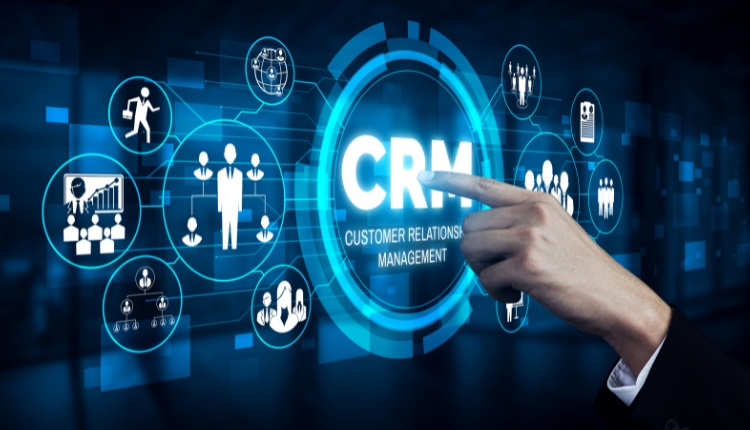Introduction
In today's hectic digital world, e-commerce has actually transformed the method organizations run. The sheer benefit of online shopping has not only altered consumer behavior however has also significantly altered how brand names get in touch with their audiences. To thrive in this competitive landscape, it's vital to focus on optimizing e-commerce for maximum conversion rates and customer retention This article will explore various methods, tools, and practices that can improve your online shop's performance, ensuring that visitors become devoted customers.
Optimizing E-Commerce for Maximum Conversion Rates and Client Retention
When we discuss optimizing e-commerce, it's vital to comprehend what conversion rates and client retention mean. Conversion rates refer to the percentage of visitors who complete a wanted action on your site-- such as making a purchase-- while customer retention concentrates on keeping those clients coming back for more.
https://squareblogs.net/schadhsytp/the-future-of-e-commerce-advancement-patterns-and-developmentsUnderstanding Conversion Rates: The Secret Metrics
What Are Conversion Rates?
Conversion rates are calculated by dividing the variety of conversions (like purchases) by the total variety of visitors to your site. For example, if you had 100 visitors and 5 bought, your conversion rate would be 5%.
Why Are Conversion Rates Important?
High conversion rates show that your website is successfully persuading visitors to do something about it. This metric not just reflects the efficiency of your sales funnel but likewise affects your general revenue.
Key Factors Influencing Conversion Rates
- User Experience (UX): A properly designed site guarantees that users can quickly navigate through products without frustration. Call-to-Action (CTA): Strong CTAs guide users towards finishing their purchases. Page Load Speed: Slow sites can deter potential buyers who expect instantaneous access.
The Role of Web Development Provider in E-Commerce Optimization
A smooth user experience starts with effective web advancement services. These services incorporate various aspects such as:
Responsive Design
With mobile devices representing a substantial portion of online shopping traffic, a responsive design ensures that your website looks and operates perfectly across all devices.
Secure Payment Gateways
Trust is paramount in e-commerce. Offering safe and secure payment choices assists in developing customer self-confidence which can directly affect conversion rates.
Integrative Functions for Improved UX
Incorporating functions like product filters, search bars, and chatbots can substantially enhance user interaction, making it simpler for customers to find what they require quickly.
SEO Solutions: Improving Exposure and Traffic
While having an appealing site is vital, it should likewise be found by potential clients. This is where SEO services enter play.
Keyword Research
Understanding what terms your target market uses when browsing online permits you to customize your material accordingly. Utilizing keywords tactically throughout your site assists improve visibility on search engines.
On-Page SEO Techniques
Optimizing aspects like title tags, meta descriptions, and alt text not just enhances user experience but also plays a crucial role in ranking higher on online search engine results pages (SERPs).

Content Quality Matters
Engaging content that answers concerns or fixes issues motivates longer gos to and increases the likelihood of conversions.
Utilizing Website design & Advancement Techniques for E-Commerce Success
Aesthetics play a crucial function in bring in brand-new consumers. Good website design need to be visually appealing while remaining functional.
Color Psychology in E-Commerce Design
Colors evoke emotions; comprehending color psychology can help affect buying decisions:

- Blue instills trust. Red creates urgency. Green promotes health and tranquility.
Navigation Simplification Techniques
An easy navigation structure permits users to find items faster. Executing breadcrumb links or mega menus can significantly enhance usability.
Enhancing Customer Engagement through Branding Strategies
Branding isn't almost logos or mottos; it has to do with creating an unique identity that resonates with consumers.
Building Brand name Trust Online
Transparency in company practices cultivates trust with customers. Displaying customer reviews and reviews prominently can improve reliability significantly.
Consistent Messaging Across Platforms
Ensure that messaging across social networks platforms aligns with your brand identity to develop a cohesive experience for consumers.
Strategies for Consumer Retention: Keeping Them Coming Back
Once you've converted visitors into customers, nurturing those relationships is essential to keeping them long-term.
Implementing Loyalty Programs
Loyalty programs reward repeat clients with discounts or unique deals which not just encourage repeat purchases but also increase overall customer lifetime worth (CLV).

Personalized Marketing Campaigns
Tailoring marketing efforts based on previous purchasing behavior or choices makes customers feel valued. Personalized emails or product recommendations can considerably increase engagement levels.
Leveraging Data Analytics for Constant Improvement
Data analytics offers insight into customer behavior patterns which can notify future service strategies.
Tracking User Behavior on Your Website
Using tools like Google Analytics allows you to keep an eye on how users connect with your site-- what pages they visit frequently or where they drop off during the purchase process.
A/ B Screening: Making Informed Choices Based Upon Data Insights
Testing different variations of landing pages or CTAs allows you to identify what resonates best with your audience, ultimately improving conversion strategies over time.
FAQs
1. What constitutes an effective call-to-action? An effective CTA ought to be clear, succinct, and compelling enough to trigger immediate action from users-- think phrases like "Store Now" or "Get Started Today."
2. How often need to I upgrade my website? Regular updates keep your material fresh which is important for both SEO functions and customer engagement; go for at least quarterly updates unless major modifications are needed sooner!
3. Why is mobile optimization critical? With more people shopping through mobile phones than ever in the past-- it's important that sites are optimized so they offer seamless experiences regardless of screen size!
4. What metrics should I concentrate on post-launch? Track metrics such as bounce rate, average session duration, conversion rate percentages-- all offer insights into locations needing improvement!
5. How do loyalty programs increase customer retention? By incentivizing repeat purchases through rewards/discounts-- loyalty programs cultivate emotional connections between brand names & & customers leading them back time after time!
6. What role does branding play in e-commerce success? Strong branding distinguishes companies from competitors & & builds trust amongst customers-- which ultimately translates into higher sales as customers feel confident purchasing!
Conclusion
In conclusion, optimizing e-commerce for maximum conversion rates and client retention includes a diverse technique including various methods-- from leveraging web development services & & SEO strategies to boosting client engagement through effective branding initiatives. By continuously examining efficiency metrics along with carrying out tailored marketing campaigns-- you'll cultivate stronger relationships with customers while driving continual growth within your company! Take these insights forward today due to the fact that every small modification could lead toward achieving higher success tomorrow!